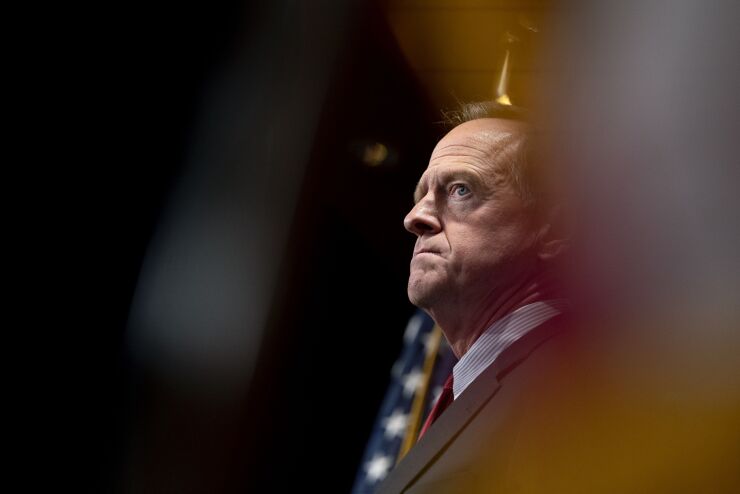WASHINGTON — The top Republican on the Senate Banking Committee is slamming three Federal Reserve banks for their work to examine the role racism plays in the economy.
In letters to the Fed regional bank presidents in Atlanta, Boston and Minneapolis, Sen. Pat Toomey, R-Pa., argued that a focus on racial justice is outside of the Fed’s scope. He took particular issue with a series of events hosted by the regional banks to discuss, among other issues, how discrimination and racial bias persist in the job market, housing system and the economics field.
“I recognize the interest in studying economic disparities along demographic lines, such as race and gender,” Toomey said in a May 23 letter to Minneapolis Fed President Neel Kashkari. “However, this subject matter is fraught with ideological assumptions and interpretations, and the work and analysis of the Minneapolis Fed seems heavily laden with political and value judgments.” (He sent similar letters to Atlanta Fed President Raphael Bostic and Boston Fed President Eric Rosengren.)
Toomey also requested that the regional banks provide records related to the planning of the 11-part “Racism and the Economy” web series, as well as any memos or emails that “describe or refer to the impetus” behind each of the regional banks’ focus on racial justice issues.

“It is not the proper role of the Federal Reserve to be engaging in political advocacy,” Toomey said in the letters. “As the nation’s central bank, the Federal Reserve has an important, nonpartisan mission.”
In a statement, a spokesperson from the Atlanta Fed confirmed that it had received the letter from Toomey.
“We look forward to discussing with him how better understanding racial inequality helps the Federal Reserve reach its mandate of maximum employment and ensure economic gains are widely experienced across the population, regardless of race,” the spokesperson said.
The Minneapolis Fed also confirmed that it had received the letter from Toomey, while the Boston Fed said it would carefully review the correspondence.
Toomey’s letters to the Atlanta, Boston and Minneapolis banks follow a separate letter he sent in March
“This approach has inserted the Federal Reserve into the emotionally-charged political arena — a place where the Federal Reserve seldom has ventured, and for good reason,” he wrote in the March letter to San Francisco Fed President Mary Daly.





